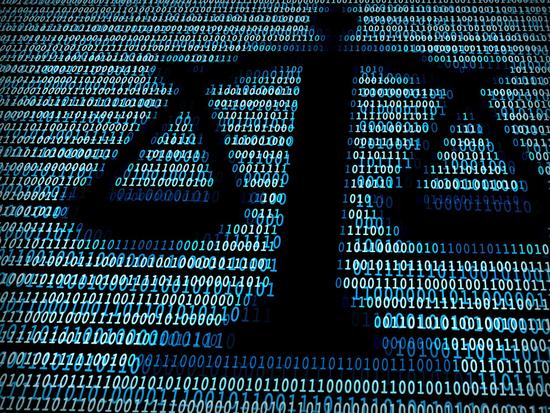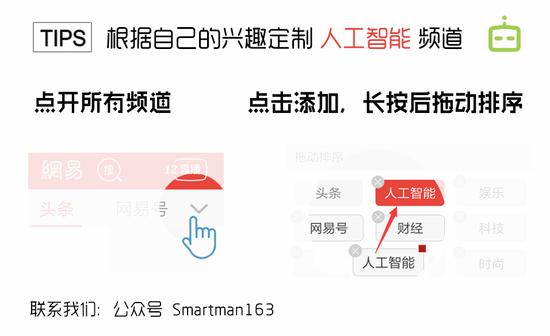The backlog of cases is rampant. Can AI lawyers resolve the ills of the legal trial?
[Netease Smart News, April 14] In the words of a technical analyst, the profession of lawyers has never really changed since the Charles Dickens era. Just like Jarndyce and Jarndyce's endless litigation in Dickens' desolate house, today's courts are overtaxed and judicial procedures are often slow and frustrating. The development of artificial intelligence is rapidly changing this entrenched status quo. But what does AI mean for lawyers, judges, and individuals who are involved in cases and other lawsuits every year? The jury trial is only one aspect of the US judicial system (court) and the entire legal profession (company). Although artificial intelligence trials are unlikely to appear in court proceedings soon, artificial intelligence has begun to be adopted to provide solutions in the legal system. The effect of artificial intelligence on legal practice seems to begin within the company. Where it came from, how much impact it will have on the people involved in the lawsuit remains to be seen. New skills for lawyers It is worth noting that the legal service market in the United States is very large. Thomson Reuters verified the income and agency spending of the U.S. legal department. The data shows that the total revenue and business expenditure in this market is 437 billion U.S. dollars. From contract to intellectual property to litigation, nearly 500 billion U.S. dollars of expenditure are spent on investment each year. Many large law firms’ revenue models are at risk. These companies assign graduates of law school graduates to labor-intensive projects, such as reviewing litigation-related documents. These lawyers review and analyze a large number of documents to identify specific e-mails related to the case’s claims. The law firm charges clients according to the number of lawyers involved and working hours, turning its heavy workload into a lucrative source of income. Therefore, when headlines such as "Artificial Intelligence Disturb Legal Business" appeared, many people noticed it. Technical consultant Richard Susskind stated, “There is a problem that hasn't been discussed here. Is that the use of artificial intelligence in the legal industry. Can someone be as successful as Amazon’s applied artificial intelligence in book sales?†A global law firm, Allen & Overy, has introduced an artificial intelligence-based system that automatically drafts contracts for investment managers and traders to use in the derivatives market. The company estimates that its system called "MarginMatrix" can greatly exceed the efficiency of a human lawyer. "Here, a document usually takes three lawyers to spend time to complete, and "MarginMatrix" can be completed in three minutes." The company said that human lawyers need to spend 15 years to deal with the 10,000 held by large banks A contract, and using the system, the time to process the contract can be reduced to 12 weeks. The ultimate impact of artificial intelligence in the legal industry may be quite positive. Artificial intelligence also plays a role in other industries. By automating labor-intensive, low-value tasks, artificial intelligence systems allow lawyers and other legal professionals to focus on complex, high-value projects. However, when 13% to 23% of the average lawyer time can be replaced by an artificial intelligence system, how much economic impact will the whole industry suffer? This is a very controversial issue. Case: Artificial intelligence in trial The Sixth Amendment to the United States Constitution guarantees "the right of a fair jury to make a quick and open trial." However, it cannot guarantee a completely fair trial, an effective jury, or a judge who will always be right. Humans make mistakes, and the court is no exception: The chance of a jury making a wrong decision is 1/8. From a human perspective, this means that of the 100 defendants, more than 12 were wrongly convicted or released. This is not the error rate that we can accept. Even if it is the residual rate of the product, it is also a disability rate that we cannot accept. If 12 out of 100 new cars break down within a mile range, consumers will feel angry and the company will lose money. When we find that the court may execute a death sentence, this error rate becomes even more unacceptable. The data shows that out of every 25 people sentenced to death in the United States, 1 person was innocent and found guilty. In a broad sense, trials involve the evaluation of facts, comparing these facts with a set of rules, and determining whether violations have occurred. This sounds like a system that a smart machine can implement. In theory, a properly designed artificial intelligence system can speed up trials and improve the consistency of court decisions, thereby improving accuracy and fairness. This is not entirely speculation. One of the largest law firms in the United States employs an artificial intelligence system called Ross, which is known as the "artificial intelligence lawyer." In the United Kingdom, researchers are researching artificial intelligence systems that can replace human lawyers to judge evidence, determine correctness, and predict trial outcomes. According to Guardian, the "artificial intelligence judge" decision was the same as that of the European Court of Human Rights judge in five cases. Another artificial intelligence system, a chat robot named “DoNotPayâ€, provides legal advice on issues such as parking tickets, travel delay compensation, and house demolition. The system not only provides legal advice but also generates documents that help users resolve legal disputes. Despite its limited interface and functionality, it is still a working example of an automated lawyer machine. Solve the ills of court trials The defendant has the right to request the jury to quickly hear the case. This is the cornerstone of American jurisprudence. However, there are too many pending cases in the courts, and humans also make mistakes, and they are often influenced by emotions. Artificial intelligence can provide accurate and fair information, but it is unclear whether they can have the moral and ethical reasoning ability. In general, the impact of artificial intelligence on the legal system seems to be ubiquitous. From individuals involved in legal disputes to lawyers and judges who handle litigation, to the world's largest global law firm, artificial intelligence will play an important role in improving the efficiency and effectiveness of the legal system. This increase in efficiency may play a key role in overburdened courts. In 2015, an estimated 30,000 federal civil lawsuits have been backlogged for more than three years. This is the fifth year of 10 years. This is a fact. Overall, in the same year, an estimated 330,000 cases of civil lawsuits have not yet been dealt with, an increase of 20% over 2004. The lengthy trials and deficiencies of human judges created a bottleneck that delayed the resolution of the law and undermined the defendant’s right to a quick trial. Artificial intelligence is ready to ease the judicial deadlock. (English source /venturebeat article starting / Entefy compiler / machine reviser / Claire) The handheld addresser is used to program the address of the monitoring module offline. When in use, connect the two output wires of the handheld encoder to the communication bus terminal (terminal label 1, 2) of the monitoring module, turn on the black power switch on the right side upwards, and press "ten Add", [Subtract ten", [Add one place" and [Subtract one place" to program the address. Motion Sensor Photocell Light Control,Sensor For Motion Control,Exterior Motion Sensor Control,Hollow Shaft Encoder Changchun Guangxing Sensing Technology Co.LTD , https://www.gx-encoder.com
 燑br>
燑br>